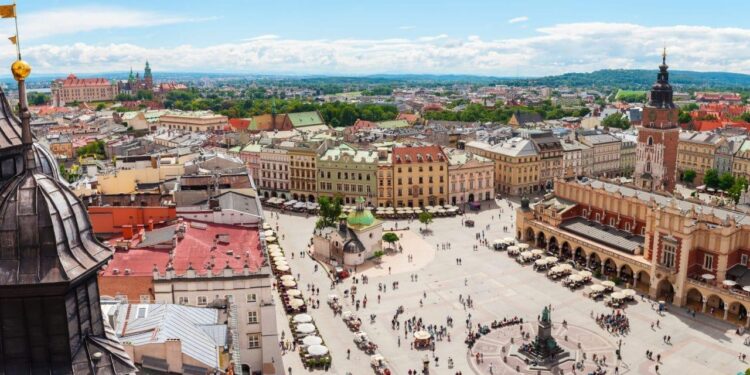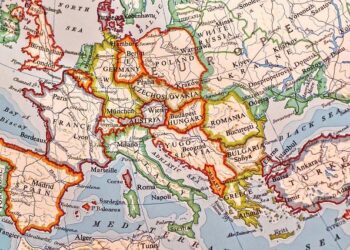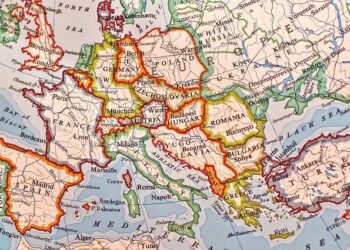Poland remains one of Europe’s staunchest defenders of coal, a stance that continues to raise eyebrows amid mounting economic pressures and escalating environmental concerns. Despite the global shift toward cleaner energy sources and the European Union’s aggressive climate targets, coal still accounts for a significant share of Poland’s energy mix and employment. This article explores the complex web of historical, economic, and political factors that keep coal at the heart of Poland’s energy policy, shedding light on why the country is reluctant to abandon its black gold despite the growing costs.
Economic Dependence and Energy Security Keep Poland Tied to Coal
Poland’s energy landscape remains deeply entrenched in coal due to a complex web of economic dependencies and historical reliance. Coal mining not only provides thousands of direct jobs but also supports entire communities, particularly in Silesia, where employment alternatives are scarce. This dependence is further reinforced by the nation’s infrastructure, which was developed to accommodate coal-based energy production. Efforts to diversify sources face resistance due to concerns about sudden job losses and social unrest, making policymakers hesitant to accelerate the coal phase-out despite mounting environmental pressures.
Energy security is another critical factor influencing Poland’s steadfast commitment to coal. Given geopolitical tensions in Eastern Europe and volatility in global energy markets, coal offers a domestic and reliable fuel source that limits reliance on foreign suppliers. This dynamic is underscored by the government’s cautious approach toward increasing imports of natural gas or expanding renewables too rapidly. Below is a summary table showing Poland’s energy mix dependency and estimated coal sector employment:
| Energy Source | Share of National Supply (2023) | Jobs Supported |
|---|---|---|
| Coal | 70% | 80,000 |
| Natural Gas | 15% | 12,000 |
| Renewables | 10% | 20,000 |
| Oil & Others | 5% | 8,000 |
- Economic resilience: Communities rely heavily on coal revenues and infrastructure.
- Geopolitical stability: Coal limits exposure to foreign energy supply shocks.
- Political dynamics: Resistance from vested coal interests delays energy transition efforts.
Social and Political Challenges Hinder Transition to Cleaner Alternatives
Efforts to shift Poland away from coal face formidable obstacles rooted deeply in the nation’s social fabric and political landscape. Coal mining communities, long dependent on the industry for employment and identity, resist changes that threaten their livelihoods. This resistance is amplified by powerful coal unions and local politicians who capitalize on fears of job losses to maintain support. As a result, policymakers often prioritize short-term socio-political stability over long-term environmental goals, hindering decisive action toward cleaner alternatives.
Moreover, the political narrative surrounding energy policy is frequently framed as a matter of national sovereignty and economic security, complicating cooperation with EU directives on decarbonization. Below is an overview of key social and political factors slowing Poland’s energy transition:
- Unemployment concerns: Coal sectors employ tens of thousands directly and indirectly.
- Political leverage: Coal-dependent regions wield significant influence in national elections.
- Public perception: Clean energy is often viewed with skepticism due to misinformation.
- Institutional inertia: Established coal-related infrastructure and policies resist overhaul.
| Factor | Impact on Transition | Estimated Timeline Effect |
|---|---|---|
| Union Opposition | Delays policy implementation | +5 Years |
| Electoral Politics | Prioritizes coal regions’ interests | +3 Years |
| Public Misinformation | Reduces support for renewables | +2 Years |
| Infrastructure Lock-in | Limits renewable integration | +4 Years |
Experts Call for Strategic Investment and Comprehensive Policy Reform
Leading analysts and environmental specialists emphasize that Poland’s reliance on coal is not sustainable without significant strategic investment and a sweeping overhaul of national energy policies. They argue that piecemeal efforts have failed to address core systemic issues such as outdated infrastructure and regulatory barriers that limit the growth of renewable energy sources. Experts highlight the necessity of a coordinated approach that balances Poland’s economic needs with its international climate commitments, calling for investments in cleaner technologies, grid modernization, and workforce reskilling to enable a just transition away from coal dependency.
Policy reform is also seen as crucial to unlock innovation and attract private sector participation. Recommendations include:
- Introducing clearer incentives for renewable energy projects and energy efficiency.
- Establishing transparent frameworks to streamline project approvals and reduce bureaucratic delays.
- Developing regional economic diversification plans to support communities reliant on coal mining.
| Focus Area | Current Challenge | Recommended Action |
|---|---|---|
| Infrastructure | Outdated coal plants & unreliable grid | Invest in modernization & smart grid tech |
| Legislation | Fragmented policies hinder progress | Implement consistent, long-term reforms |
| Workforce | Coal sector employment instability | Reskilling and job transition programs |
In Conclusion
As Poland navigates the complex balance between economic stability, energy security, and environmental responsibility, its enduring reliance on coal underscores the challenges facing the country’s transition to cleaner energy sources. Despite mounting economic pressures and international calls for decarbonization, coal remains deeply embedded in Poland’s economy and society. Understanding this dynamic is crucial for policymakers and observers alike, as Poland’s energy choices will continue to have significant implications not only domestically but across the wider European region.
















